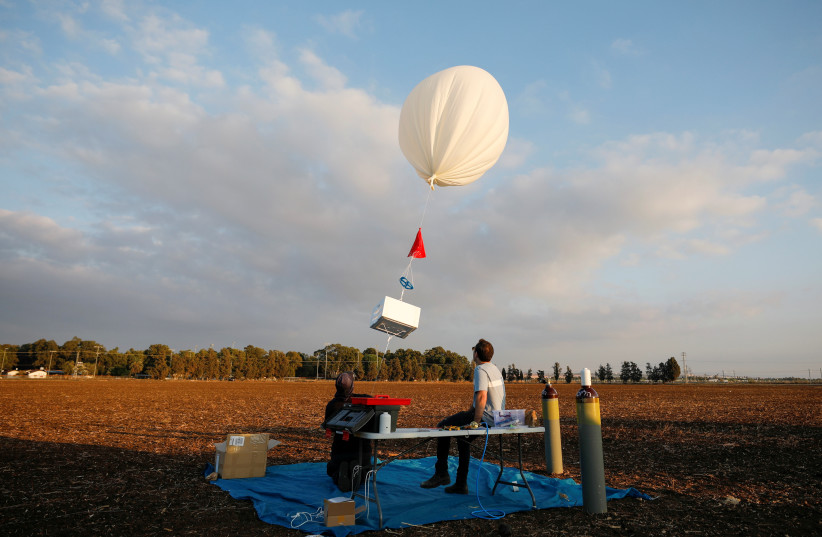An Israeli startup has joined the fight against global warming by seeking inspiration in the upper atmosphere, where it hopes to send fleets of balloons that will trap carbon dioxide for recycling.
Carbon dioxide emissions, from the burning of fossil fuels and from industrial agriculture, are the main cause of climate change. But removing CO2 from the atmosphere at standard temperatures requires too much energy for governments and companies to consider it cost-effective.
High Hopes Labs developed a system that captures the carbon where it has almost solidified, far above the Earth.
"The beautiful thing is that capturing gas is very easy when it's close to freezing...," CEO Nadav Mansdorf told Reuters.
"Carbon is freezing in minus 80 degrees (Celsius) and the only place that we can find carbon in a temperature close to that, is 50 kilometers (30 miles) above our heads."


The company has tested its system on a small scale, Mansdorf says, releasing gas-filled balloons with a box that serves as a carbon-capture device attached underneath.
The frozen carbon then falls back to Earth where it can be recycled for industrial use.
The company aims to build larger balloons within two years that could each be deployed to remove a tonne of carbon a day at a cost below $100, much less than comparable on-ground facilities currently in use, Mansdorf said.
The Environment and Climate Change portal is produced in cooperation with the Goldman Sonnenfeldt School of Sustainability and Climate Change at Ben-Gurion University of the Negev. The Jerusalem Post maintains all editorial decisions related to the content.
